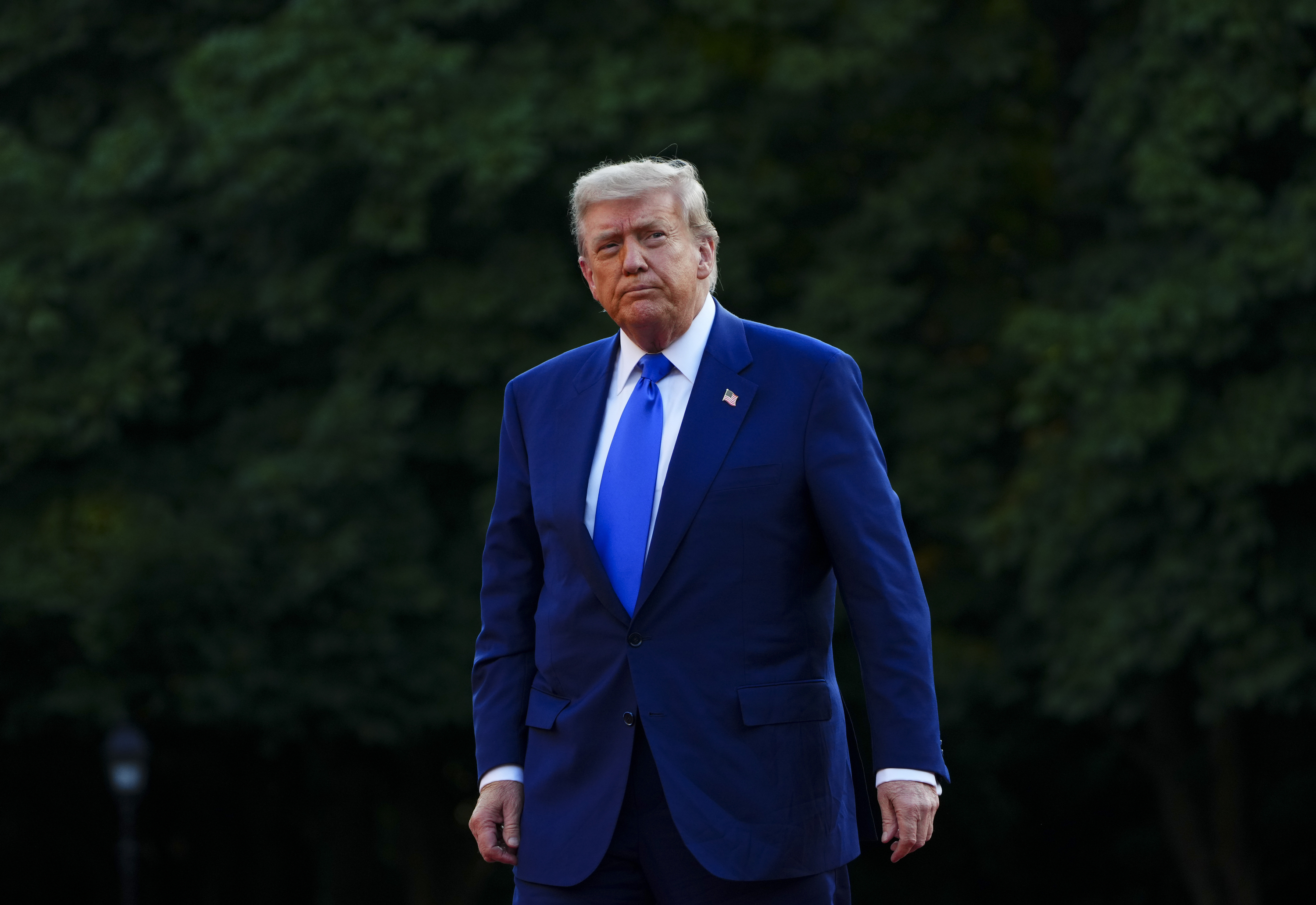The NATO summit held in The Hague has sparked a clash of unprecedented intensity between the US and Spain. A sustained escalation in recent days culminated in Donald Trump stating that "there is a problem" with Spain within NATO, due to its refusal to commit to spending 5% of GDP on Defense. While flying aboard Air Force One, the US President posted on his social media a graph titled "Spain threatens to derail the NATO summit," showing Spain in last place in GDP investment, accompanied by images of himself, Mark Rutte, and Pedro Sánchez. Despite pressures, the Spanish government maintains that "it is a decision made" and does not consider spending more than 2%.
The dinner hosted by the Kings of the Netherlands was the first occasion where Trump and Sánchez coincided amidst the controversy. In the family photo, the American President was in the front row, and Sánchez in the fourth, the most distant. Considerably apart. During the dinner, in a not overly large room, the American occupied the head table - alongside Rutte and the Kings, among others - while the Spanish leader sat at a more secluded table, next to the Prime Minister of Albania, Edi Rama. Also with separation.
The US is one of the countries, if not the one exerting the most pressure for all allies to commit to reaching 5% of GDP. Spain's refusal, formalized a few days ago in a letter from Sánchez to Rutte, shifted the White House's focus to La Moncloa. "Spain does not agree, this is very unfair to the rest," Trump stated just hours before facing Sánchez. This was not his first expression of anger. "NATO will have to deal with Spain. They have paid very little. They have always paid very little. I think Spain has to pay the same as the others," he expressed a few days ago. The Spanish government downplays all of Trump's challenges as "opinions."
The shake-up is being contained in La Moncloa, where despite the tension and clash, they assure that in recent days there have been "high-level contacts" with the US and that throughout the negotiation process, Spain has worked "discreetly" and "loyally." Even in the Spanish delegation, they joke about the flexibility in military spending they claim to have achieved, which will allow Trump himself to comply with not reaching that 5% mark.
Trump demands that all Alliance members increase their Defense spending to 5%, a point Sánchez completely rejects. The government argues that, according to calculations by the Armed Forces technicians, they are fine with staying at 2.1% to meet the required military capabilities, as agreed upon last Sunday with the NATO Secretary-General. However, Mark Rutte denied this agreement on Monday and insisted that Spain must reach 5%. As the clash escalated, countries like Germany or the UK confirmed their intention to reach that threshold.
Against the criticisms, the government insists that there is a "pronouncement by NATO," which is their interpretation of the exchange of letters between Mark Rutte and Pedro Sánchez, stating that they are not committed to spending 5% of GDP on Defense, the commitment requested by the Alliance and the US, and which will be reflected in the declaration to be signed by the allies.
In response to the controversy and clash, the government maintains that their position is not to "block" any agreement or the summit's progress, expressing confidence that Trump's attitude will not disrupt the progress made so far. They state that they do not want to clash with the US, but it was a risk because it is a decision already made, knowing that every decision can have consequences.
Specifically, the government points out that the final summit declaration is full of ambiguity so that each of the allies, based on their position and approaches, can interpret it according to their interests. They have avoided using phrases like "we, the allies" or "all the allies," simply mentioning "the allies" so that each can act differently.
Nevertheless, the government tries to counter these criticisms by conveying that Spain is "a serious and reliable partner," citing that Spain's rejection of spending 5% of GDP on Defense has been a publicly known position for some time, and no country, not even the US, objected during the weekend negotiation process after Spain expressed its rejection to the allies.
Sánchez's decision to confront NATO and the US has significant domestic implications. His governing partners reject Spain increasing its military spending. This was made clear when the Council of Ministers approved an additional expenditure of 10.471 billion euros in April to reach 2% of GDP this year. Even Sumar expressed disagreement.
Currently, the Prime Minister faces a moment of great weakness. The UCO report describing an alleged corrupt scheme in the PSOE and the Government - involving two of his closest confidants, José Luis Ábalos and Santos Cerdán - has already stalled the legislature, causing much discomfort among his supporters. Accepting to set military spending at 80 billion euros annually would have been a lever for parties like ERC, Bildu, BNG, or Podemos to break the mandate. At least, the clash provides breathing room for Sánchez and a chance to divert attention from the corruption issue.
